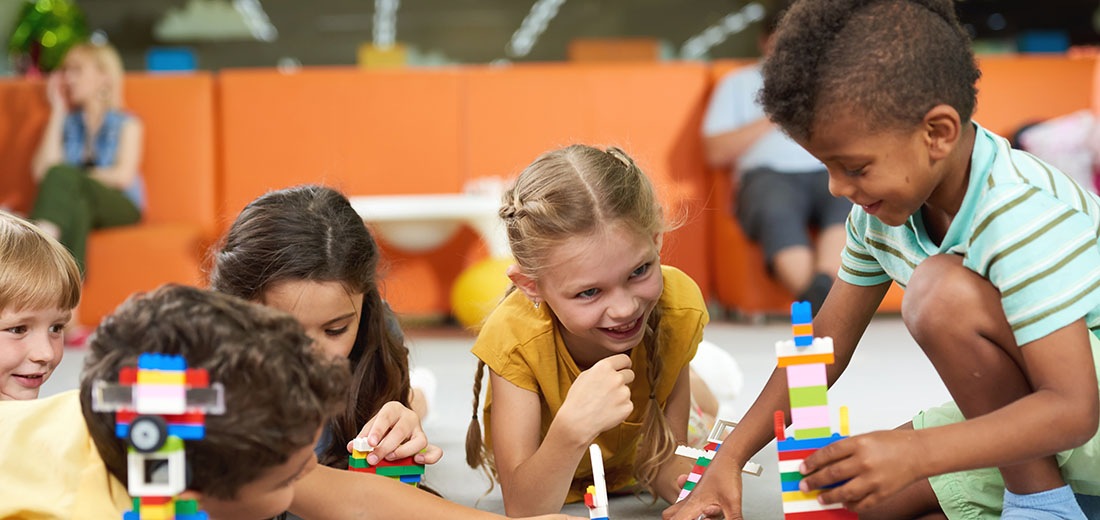What do you see when you look around a preschool classroom? The children within – usually between three and four years old – giggle, laugh, and smile during free play. They are curious about what their day will bring. When story time comes, they pay attention. They ask questions. During hands-on activities, more questions arise. To express their needs and feelings, they use words.
Important pre-school lessons take place regarding a child’s development at this age. Without a doubt, there are social and emotional benefits of a daycare center. It will prepare them for the life changes that are bound to take place now and in the future and how to deal with them.
For example, if a child wants to use a toy before another child, one child may tell the other, “You can have it soon (or later).” The second child may respond, “Okay, you have it for five minutes and then I get it for five minutes.”
If a parent or daycare professional notices this positive behavior, they can promote it and discuss the exchange. For example, “What an awesome way to play with each other. You guys are talking about taking turns!”
This is an example of emotional and social health in a daycare/preschool environment. Children such as this tend to not only demonstrate, but continuously develop, crucial skills and behaviors.
Socially and Emotionally Healthy Children
Kids that are socially and emotionally healthy…
- Can compromise, negotiate, and play well with others.
- Find ways to access group activities and ongoing play.
- Express preferences and wishes clearly.
- Show empathy and understand other people’s emotions.
- Manage, label, and recognize their own emotions.
- Show interest in others and care about friends.
- With peers and caregivers, have close relationships.
- Follow directions and listen to instructions.
- Are frequently in good moods.
A Daycare Center Teaches Emotional and Social Skills
At the heart and soul of any child centered program is an interest in assisting children in the development of emotional and social skills. Caregivers and teachers play key roles in this effort. By using children’s books, teachers can help support children’s emotional and social health. Additionally, they can provide cues, model appropriate behavior, give effective praise, coach on the spot, plan activities, and more. Affection and warmth, even on a rough day when kids are not behaving well, are crucial in early education to a child’s well-being.
Putting Strategies into Action
To promote the emotional and social health of children, several noninvasive strategies have been designed and implemented by teachers. These can include the following:
- To redirect a child’s behavior and attention, gently placing a hand on their shoulder.
- For a job well done, praising a group effort.
- On the spot, acknowledging a kind act.
- Employing language that is simple when giving reminders and setting expectations.
- Using nonverbal contact and gestures to get a message across.
- Modeling respectful behavior and appropriate warmth throughout the day. When a gentle reminder is needed, giving it.
- As a nonverbal clue to consider their behavior, when needed, moving closer to children.
The Appropriate Daycare Center for Your Child’s Well-Being
Are you looking for a daycare center that helps encourage the social and emotional well-being of your child? Contact us today at Home Away Childcare Center.




